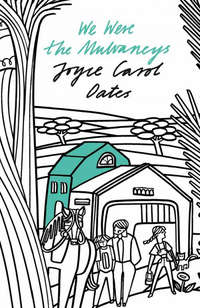
Полная версия
The Sacrifice
Left her for dead, they’d been beating and raping and starving her. She’d lost more’n half her blood. Branded KKK in her skin with hot irons. Carved nasty words on her back. They’d picked her up outside the high school there was witnesses saw the white cops takin her away in a cop van tryin to say she a nigger hooker her pimp give to them for payment. Kept the girl tied up for three days while her mother lookin for her on every street, we seen that poor woman showin pictures of the girl to anybody who would look. They raped her, beat and kicked her an rolled her in dog shit an told her they would cut her throat an her family’s if she told and they told her nobody would ever believe her, take the word of a nigger slut against the word of white cops and they left her to die in that nasty place where in ’67 they dumped people they’d shot in the street and nobody found the bodies for a long time. But this girl didn’t die.
“S’quest’d”
Where my baby? She s’quest’d. She aint here. She sick, and she gon get well. You leave my baby alone!
In the brownstone row house at 939 Third Street the agitated mother scarcely opened the front door but shouted through a narrow crack for would-be visitors to go away. Initially, Mrs. Frye had tried to determine who it was ringing the bell or rapping loudly at the door when the buzzer-bell failed to sound, a familiar face, relatives, girlfriends of Sybilla’s, incensed and sympathetic neighbors or strangers—so many strangers!—then in a frenzy of fear and dismay she turned them all away slamming the door in their faces.
Through the windows Ednetta Frye could be seen, a shifting shadow-shape, peeking out at the edges of the drawn blinds. Her figure was both hulking and tremulous. Muttering to herself God help us. God help us through this mis’ry.
It was known, Sybilla Frye was being kept home from school. Days in succession following the news of her discovery in the Jersey Foods factory she was absent from Pascayne High South where she was a sophomore with what school authorities were acknowledging was a spotty record—a history of sporadic and unexplained absences already since the start of the fall term after Labor Day and the previous year in ninth grade as well.
Questioned by authorities about the assaulted girl, the principal of the high school had no recollection of her nor did her teachers speak of “Sybilla Frye” with much certainty—classes at Pascayne South were overcrowded, students sat in seats not always assigned to them, Sybilla’s homeroom teacher had taken sick days in September during which time substitutes had monitored the thirty or more students in the homeroom and none of these had any clear recollection of “Sybilla Frye” still less any information about her.
Nor did Sybilla’s classmates wish to speak of her except in the most vague terms—S’b’lla be out of school, somethin happen to her.
When someone from the high school called, Ednetta Frye interrupted without listening to whatever question, request, message this stranger had for her—My daughter not livin in this house right now! She s’quest’d somewhere safe. Repeated calls, Ednetta picked up the receiver and slammed it down without listening.
Juvenile Aid of New Jersey, Child Protective Services, Passaic County Family Services—calls from these agencies, Ednetta Frye dealt with in a similar fashion. Individuals from these agencies, even those dark-skinned and female like herself, Ednetta Frye turned away brusquely from her door.
She s’quest’d where you can’t get her! Just go away an leave us like you ever give a damn for us!
The Hispanic female police detective who’d pretended to be Ednetta’s friend in the hospital ER returned, with a (male, Italian-looking) detective-companion who stared at Ednetta with an expression of barely concealed contempt. Ednetta had seen the white-and-green Pascayne PD cruiser park at the curb only a few yards away from the window at which she crouched pressing the palm of her hand into her chest as she panted in pain and apprehension—Jesus help me. Jesus send these people away—and she guessed she had no choice but to open the door to them, at least a crack, for possibly they had a search warrant? a warrant for arrest?—though which of them it might be, Sybilla, or herself, who’d be arrested, Ednetta had no idea. She was near-fainting with anxiety. High-blood-pressure pounded in her ears. As the female detective knocked Ednetta snatched open the door saying in a hoarse pleading voice what sounded to the detectives like—My baby s’quest’d! She ain’t here! Can’t talk to you now gon shut this door.
The female detective—(Ednetta hadn’t caught the name, much of what other people said in recent days flew past Ednetta’s consciousness like panicked birds whose beating wings you ducked to avoid)—tried to prevent her from shutting the door. Saying it was crucial that she speak with Sybilla, and with her. The female detective’s companion was standing beside her grim-faced staring at Ednetta through the two-inch crack between the door and the doorframe and Ednetta saw in the man’s ice pick eyes the look that signaled We know you are lying you God damn fuckin nigger bitch you will regret this.
The female detective—“Iglesias”—was trying to speak calmly to Ednetta. Seeing that Ednetta was in an excitable mood. (Both cops alert to whether the distraught and panting heavyset black woman might’ve been hiding a butcher knife behind her broad hips, or a hand gun.) Telling her that she, Iglesias, was her friend; and she’d brought with her Detective ___ —whose name Ednetta could not have heard even if she’d wanted to hear it, blood pumping in her ears; and they hoped for just a few minutes of her time, and if they could please speak with Sybilla … And Ednetta said sharply Ma’am I told you you can’t! My baby aint in this house she s’quest’d somewhere safe.
Iglesias seemed not to hear. Not to understand.
S’quest’d? “Sequestered”?
Quickly Ednetta shut the door. Her heart was pounding so hard in her billowy chest, she’d have thought it was an angry fist demanding release.
From inside Ednetta could see Iglesias and the other detective outside on the step conferring what to do. Shrewdly she reasoned that the detectives didn’t have a warrant to enter the house—if they had, they’d have entered the house; nor did they have a warrant to arrest her or Sybilla. (Could you arrest someone for being a victim? Could you arrest someone for being a victim’s mother?) Still, Ednetta was remembering the martial law days and nights of August 1967 when SWAT teams stormed Red Rock houses in a hail of bullets or threw tear gas containers or firebombs into dwellings like this in a pretext of “neutralizing” sniper fire. She hadn’t known Anis Schutt then but knew of how Anis’s (unarmed) sixteen-year-old brother Lyander had been murdered by city police for stepping outside his mother’s house on Freund Street five minutes after the 9:00 P.M. curfew. A sixty-year-old great-aunt of Ednetta’s living in a first-floor apartment in the Roosevelt project had been shot dead through a window unwisely passing in front of a blind with a harsh light behind it—another “sniper” casualty.
Iglesias was calling through cupped hands not in a threatening-cop voice but a friendly-female voice—Mrs. Frye? Please? We can just speak with you. This is crucial for our investigation.
Ednetta retreated to the rear of the house. Ednetta climbed panting and sweating to the second floor of the house. Ednetta hid away in her and Anis’s bedroom whimpering like a wounded creature sprawled on the bed covering her head with a blanket. Jesus help me. Jesus forgive me. None of this my fault Jesus!
When she revived, the house was quiet. She listened hard to hear if the detectives were knocking on the door, calling for her, but they were not.
She’d heard a vehicle in the street, pulling away. She hoped this was the police cruiser.
Damn phone began to ring, she’d thought she’d taken the receiver off the hook. She took that precaution now.
It was true: Sybilla Frye wasn’t in the brownstone at 939 Third Street. Soon after they’d returned from St. Anne’s Hospital and before Anis had returned to the house Ednetta had taken the girl away to stay with Ednetta’s seventy-nine-year-old grandmother who lived in a ground-floor apartment in the dead end of Eleventh Street at the river.
High above Ednetta’s grandmother’s windows was I-95 northbound, the elevated Turnpike. There was a near-continuous shudder and vibration of traffic in the apartment like the breathing of a great beast. The air was a pale-cinnamon haze.
Sybilla’s great-grandmother Pearline Tice had not been informed of the nature of the terrible hurt done to the battered girl but only S’b’lla needin to spend some time with you, Grandma. Somebody act bad with her now she gon conv’lesce. She give you trouble, call me quick!
Ednetta’s other children still living at home—the younger son and daughter—were in school when the detectives came to the door. Anis had been out and Ednetta didn’t know for sure—often, she didn’t know, and could not ask—if Anis intended to be back that night for supper.
(Anis had other places he stayed, some nights. Anis had sporadic if precisely unidentified “work” that seemed to pay fairly well—judging by cash he set out on the kitchen table for Ednetta when he was in a generous mood. It was enough for Ednetta that Anis Schutt kept his clothes and things with her—meaning he’d always be coming back to her. Other places, other women were temporary.)
Now that Sybilla was out of the house, that was a calming influence on Anis.
Ednetta hadn’t told him about Sybilla hog-tied in the fish-food factory, and taken to the ER. She hadn’t told him that Sybilla had been questioned by a Pascayne PD detective. Not yet.
Anis knew some of what had happened. But not all.
It was like Lyander shot down dead over on Freund Street and his body not found until morning when the curfew lifted. You know that something has happened, it will hit you hard and irrevocably but you don’t know (yet) what it is and you are in no hurry to know.
That morning Anis had awakened late. You tiptoed around Anis sprawled naked and snoring in bed one of his muscled arms flung out like a gnarly tree limb. And his face that was an ugly-scarred not-young face twitching and grimacing in sleep. Standing above the man seeing his eyeballs shifting inside the tight-shut lids which meant he was dreaming Ednetta lapsed into a dream of her own recalling her friend from girlhood Natalia who’d murdered her common-law husband (as the newspapers would identify him) while he’d slept in just this way, gripping in both hands a revolver belonging to the man, pointing the barrel at the man’s forehead from a distance of no more than three inches then pulling the trigger. It was him or me, he’d have killed me Natalia said and though this was true, they’d convicted Natalia of “cold-blooded” second-degree murder and sent her to the women’s prison at Trenton twenty-five years to life.
Ednetta loved Anis too much for anything like that.
Even if it became necessary Ednetta wasn’t the one for anything like that.
So, you moved quiet and took care not to close any door with a click, not to waken the man. Stumbling out of the room to dress in the bathroom and not to use the faucet that squeaked, and not to flush the toilet that made too much damn noise. And if you turned on TV to see local morning news you kept the volume down almost to mute.
(Nothing on the TV about “Sybilla Frye”—yet. There’d been no official charges made, no news released to the media. Ednetta reasoned that so long as she kept away from all cops, and kept Sybilla away, there would never be this news and maybe it would all just fade away like things do.)
The younger children had learned also to hush, to be very quiet not to awaken their stepdaddy. They were gone to school by the time Anis staggered out for breakfast and by this time Sybilla would have been gone also if she’d been in the house. No reason for Anis to ask about her and he hadn’t asked. Hadn’t said a word. Silent in the kitchen devouring the breakfast Ednetta had prepared for him which was a hot breakfast—sausages fried in grease, corn bread—and strong-smelling coffee whitened with milk the way Anis liked it and he hadn’t looked at her in fury or in shame though he’d grunted in farewell rising from the table, grabbing his jacket and his cap and departing with footsteps quick for a man so heavy, like mallet-thuds on the floor.
All he’d been hearing on the street that week, had to be hearing and he hadn’t said a word to Ednetta.
Between the girl and the stepfather was a treacherous wild place Ednetta tried to avoid.
They were two of a kind, Ednetta thought: the girl, the stepfather.
She was the responsible one. She was the mother.
First thing he’d said moving into this house he’d said if these kids are under my roof with me, they are going to be disciplined by me. In Anis’s own way of speaking (which did not involve the employment of actual words you might recount, contemplate) he’d allowed her to know this. And he had his own boys he’d brought with him—big, brooding boys, not home half the time, or more than half the time, never mind them.
And Sybilla was just a young girl then, sixth grade, eleven years old, grateful to be taken up by the Tyne girls across the street, and the gorgeous Jamaican Gloria Estes who was their stepmother and braided the girls’ hair including Sybilla’s hair and it was like Sy billa adored them all and had no judgment. And the girls were running crazy-wild colliding with people on the sidewalk, elderly ladies, crippled men, that poor no-leg boy in his wheelchair in Hicks Square, giggling and screaming and in the Korean grocery two of them attracted the attention of the cashier (who was also the store owner) and another two wandered the aisles with schoolgirl innocence while slipping things into their pockets, licorice twists, salted peanuts, gummy worms, mints, no surprise the girls were caught—(disgusted Mr. Park could see the ghost-white-girls cavorting on a TV surveillance screen)—and when Anis found out that his eleven-year-old stepdaughter had been “arrested” for shoplifting with three other, older girls he’d disciplined her grimly in a way he said had to be done, it was the way his own father had done with all his children, beating the girl with his belt, a half-dozen harsh strokes, a dozen harsher strokes, and now the girl was screaming in pain and terror for her mama had never hurt her like this, even in a blind rage Ednetta had never hurt her children in such a way, but Anis who was the new stepdaddy believed in a different sort of discipline and finally Ednetta had dared to rush at the man to stop his hands terrified he’d injure her little girl seriously with the flying buckle that had inflicted hurt on her bare back, buttocks, legs, blood-oozing welts. And Anis had flung Ednetta from him to stumble stunned against a wall. And Anis had said afterward it was a good thing she’d stopped him for once he began in the way of disciplining which was his own daddy’s way it was hard to stop.
Soberly and seriously he’d told Ednetta this. He had not exaggerated. Uneasily Ednetta recalled the rumor—(not a rumor but “fact” but Ednetta didn’t want to think in such specific terms)—that Anis Schutt had beaten to death his first wife a beautiful Haitian named Tana and been convicted of second-degree manslaughter and incarcerated at Rahway for how many years exactly, Ednetta didn’t know.
So it was a warning, Ednetta thought. A warning for the heedless stepdaughter and a warning for the mother.
Don’t provoke Anis, girl. You know the man have this temper, he can’t help.
Yet it was a desperate thing, how she loved Anis Schutt. A melting sensation in the region of her heart, Jesus! First time she’d seen him, and she had not been a naïve young girl then. And thinking he was an ugly man, large blunt face like something carved in weatherworn rock and an oily black skin ten times blacker than Ednetta Frye who wasn’t what you’d call light-skin. And his eyes distinct and shiny as marbles in his head and restless, and his way of carrying himself like he was too restless to be confined in any space. And you would not ever want to cross Anis Schutt or draw his angry attention. And yet she’d stared at him, and stared. And he’d seen her, and smiled at her. And suddenly his face was changed, even boyish. Even kind-seeming.
You lookin at me, honey? You got somethin for me?
He’d been crazy for Ednetta Frye’s gat-toothed smile. Big enough space he could stick the tip of his tongue into it, almost.
He’d been what you would call an older man—not even thirty!
She’d been just seventeen.
Ednetta smiled, recalling. O Jesus.
In a woman’s life there is only one man like Anis Schutt. She’d had him, even if she lost him in some time to come she’d had him, that could not be taken from her.
What a woman would do for a man like Anis, Ednetta would do, and had done. And would keep doing, as long as she could.
What the first wife Tana might’ve done was betray. In no way did you betray Anis Schutt and not be hurt bad for doing it.
Ednetta wasn’t always sure she loved the girl. So much of herself she saw in Sybilla, the almond-shaped eyes, the gat-toothed smile—it was like herself and how could you “love” yourself?
My baby, she myself. Why I feel so bad for her, and blame her.
Soon the sons-of-bitches intruding upon Ednetta’s life returned to the brownstone at 939 Third. Ednetta saw the God-damn vehicles pulling up to the curb like her place was some kind of drive-in bank teller or fast-food restaurant. Now these were senior staff workers from Juvenile Aid, Child Protective Services, Pascayne County Family Services, and Save-Our-Children which was a white-folks’ church volunteer organization with a storefront office in Red Rock. And Sergeant Iglesias. All looking for your daughter Sybilla Frye, and with warrants. And Ednetta said, pressing the heel of her hand against her bosom, eyes brimming with hurt and indignation Ain’t I told you! My baby s’quest’d where you can’t find her.
Because they had warrants, Ednetta couldn’t keep them out. Let the sons-of-bitches search the house upstairs and down, the kids’ bedroom, her and Anis’s bedroom, Sybilla’s closet-sized bedroom with picture-posters on the wall—Michael Jackson, Tina Turner, Whitney Houston, Prince, LL Cool J, Public Enemy. The fact was, Sybilla wasn’t there.
Girl-Cousins
Where’s S’b’lla?”
“They sayin S’b’lla in some hospital.”
“They sayin S’b’lla in ‘custody.’”
“S’b’lla in Juvie.”
“Nah S’b’lla ain’t in Juvie—she the one got hurt.”
Sybilla’s girl-cousin Martine and several of her friends from the neighborhood went to her house looking for her and each time Mrs. Frye sent them away—S’b’lla ain’t here. Y’all get on home.
Martine was Sybilla’s age and in Sybilla’s class at Pascayne South. Some of the rumors she’d been hearing about her cousin were so nasty, she’d had to press the palms of her hands over her ears and run away.
Through back-alleys she came to the rear of the brownstone row house in which her aunt Ednetta Frye lived with that man Anis Schutt. Thinking she would peek in the windows and see if she could see Sybilla inside, but Ednetta had drawn all the blinds down to the sills.
Martine thought, if her cousin Sybilla was dead, she would know it. That shuddery sensation like when someone walks over your grave-to-be.
All of Sybilla’s girlfriends were talking about her, wondering where she was. Sybilla was starting to hang out with older guys but it had to be in secret—Ednetta couldn’t know. (For sure, the stepfather Anis couldn’t know. That man would whip her hard with his belt and give Ednetta a few swipes, too.) Her friends wondered if this disappearance, all these rumors, had to do with that.
Or maybe there was no connection. Sybilla was just grabbed in some alley, dragged into a car or a van and driven away, kept for three days and three nights and God knows what done to her.
“They sayin she in the hospital now, in some ‘special care’ ward. She on ‘life support.’”
“Nah. They sayin she run away with that Jaycee.”
It wasn’t uncommon for a girl like Sybilla who didn’t get along well with her mother to be sent away—somewhere. Martine wondered if this was the explanation.
Where’s S’b’lla?—Martine nagged her mother who’d told her a dozen times she didn’t know. There was something evasive in her mother’s voice that suggested to Martine that she did know. (Martine’s mother Cheryl was Ednetta’s younger sister. Bullshit Ednetta hadn’t confided in her.)
The last time Martine went to Third Street to knock on her aunt’s door Ednetta cursed her with a choking sob God damn girl ain’t I told you! S’b’lla not here! Just go.
For sure something had happened to Sybilla, you could tell by Ednetta’s behavior. That guilty-ravaged look in Ednetta’s face. How quick Ednetta flared up in a nasty temper.
Whatever it was, Ednetta knew. She just wasn’t telling.
Martine hated it when people’s mothers changed from who they were to somebody else, the look in their faces and in their eyes like they were strangers and didn’t care for you like they’d always done. A man was different, it was never surprising a man might change, and a man might change back to who he’d been, or a man might just depart and you’d never see him again. But a woman like Ednetta who was Martine’s aunt, her mother’s older sister, who’d taken care of Martine a thousand times, and had always babied and kissed her like Martine was her own daughter, and (maybe) nicer than Sybilla in fact—if a mother like Ednetta could change, that made Martine want to cry.

“S’B’LLA?”—SOFTLY MARTINE CALLED CUPPING HER HANDS TO her mouth.
Standing on tiptoe in the alley outside her great-grandmother’s ground-floor apartment on Eleventh Street. It was a wild chance Martine was taking but you had to figure if Sybilla had been sent away, likely it was here. Martine had been sent away to Grandma Tice’s place herself more than once, when her mother didn’t have time for her or was in the women’s shelter and Martine didn’t want to live there with her and the other pitiful beat-up women and kids.
“S’b’lla? Hey? It’s me.”
From where she stood in the alley, she couldn’t see into the room behind the window. But this would be Sybilla’s window if Sybilla was staying here.
Somewhere close by a dog was barking furiously, God damn thing she’d have liked to murder. If Grandma Tice came to the window instead of Sybilla and saw her, she’d send Martine away with a scolding.
Like a cooing pigeon Martine called gently, stubbornly—“S’b’lla! It’s Martine.”
Suddenly the window was tugged up. And there was Sybilla leaning out to Martine looking surprised and happy—like a little girl surprised and happy.
“M’tine! Jesus! Hi.”
“S’b’lla! Jesus.”
This was a shock: her girl-cousin beat-up.
Almost, Martine might not have recognized Sybilla.
Both Sybilla’s eyes were puffy and discolored, her upper lip was puffy and scabby, one of her eyebrows was shaved and stitched like a weird horror doll, and her hair was cut jagged like a weird horror wig. It was like Sybilla had been dragged from the rear of a vehicle like they told of black people being dragged in the terrible old days in the South or some nasty place like Texas.







